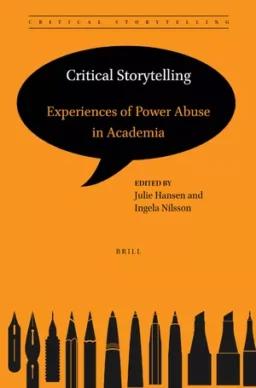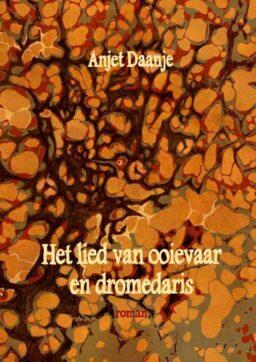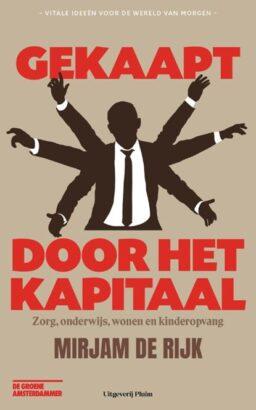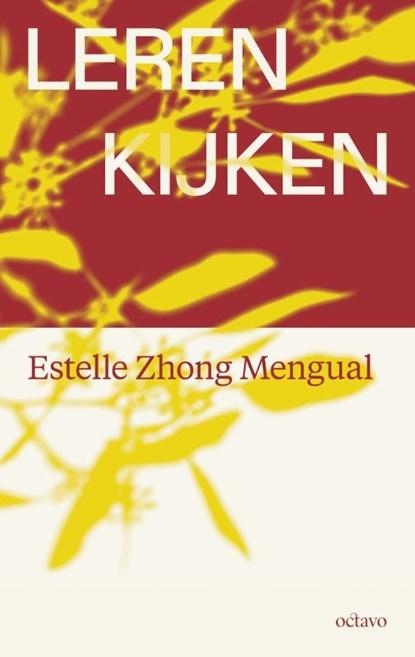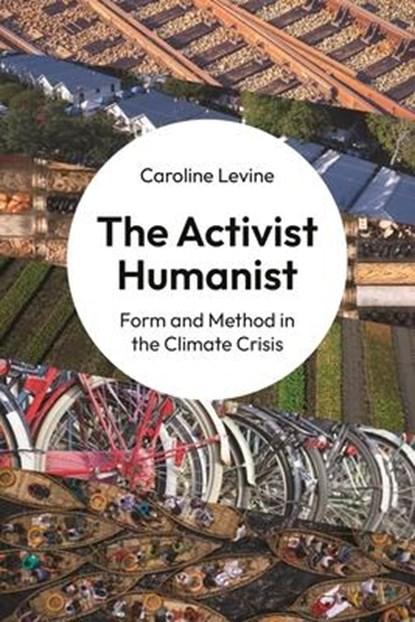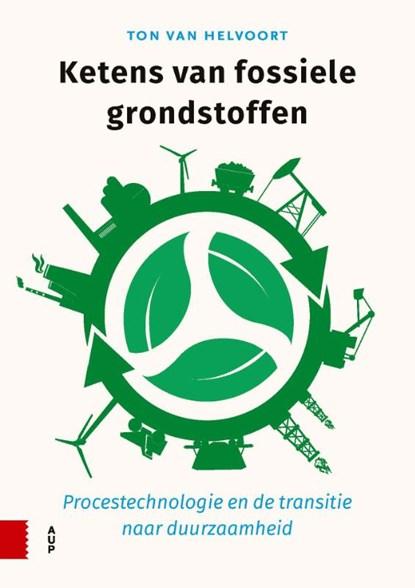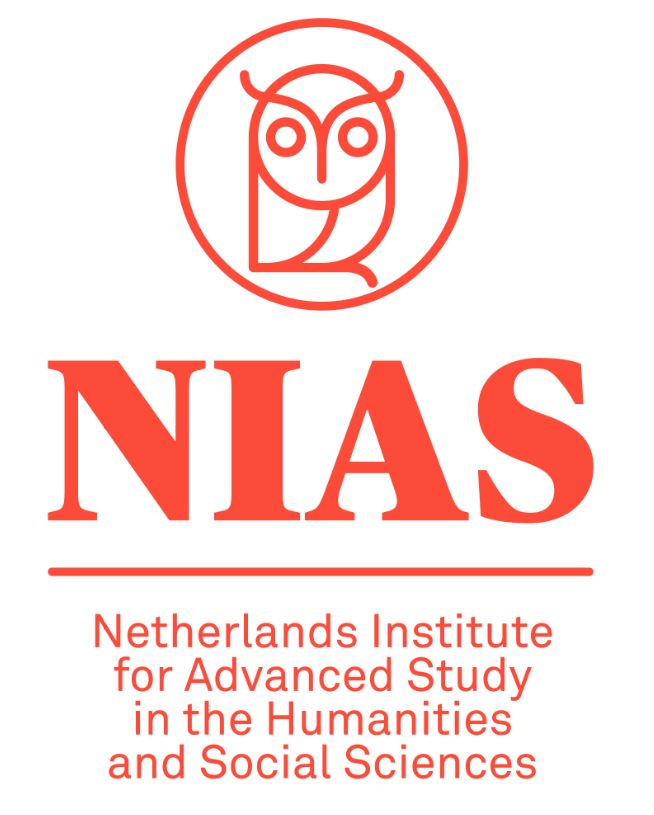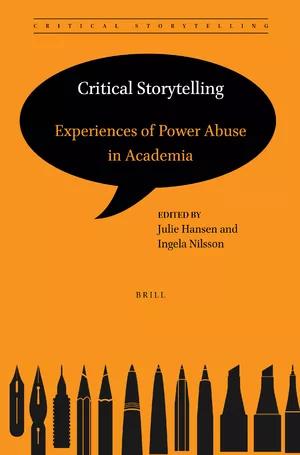Making sense of an overheated world
Nu het werk van zijn onderzoeksgroep in het kader van het interdisciplinaire onderzoeksproject ‘Overheating: The three crises of globalisation. An anthropological history of the early 21st century’ (European Research Council 2011 advanced grant) voltooiing nadert, weet Thomas Hylland Eriksen het zeker: zonder verregaande interdisciplinaire samenwerking op alle niveaus van onderwijs en onderzoek zal de mensheid er hoe dan ook niet in slagen de drie gelijktijdige crises van de globalisering – de economische, de culturele en de klimatologische – het hoofd te bieden. Een kritiek op kennisdomeinen en de academia, én een vurig pleidooi voor radicale interdisciplinariteit en maximale interactie tussen wetenschap, kunst en maatschappij; niet toevallig ook het credo van de Nederlandse Boekengids.
Besproken boeken
-
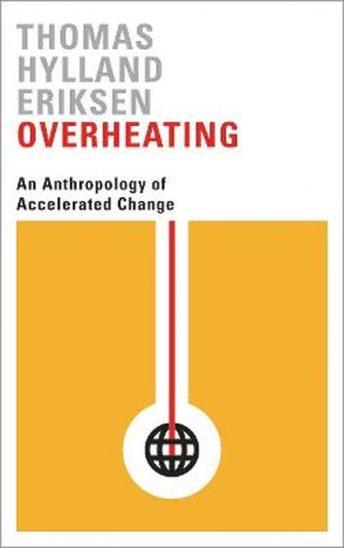 Thomas Hylland Eriksen Overheating. An anthropology of accelerated change (Pluto Press 2016), 192 blz.
Thomas Hylland Eriksen Overheating. An anthropology of accelerated change (Pluto Press 2016), 192 blz. -
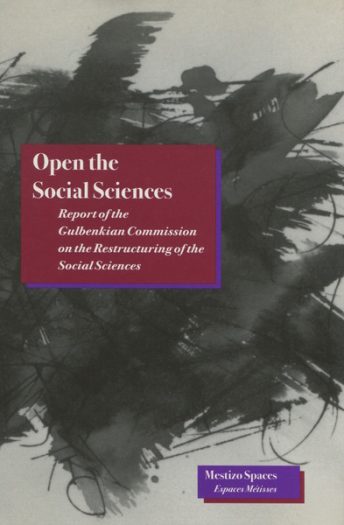 Immanuel Wallerstein (red.) Open the Social Sciences: Report of the Gulbenkian Commission on the Restructuring of the Social Sciences (Stanford University Press 1996), 124 blz.
Immanuel Wallerstein (red.) Open the Social Sciences: Report of the Gulbenkian Commission on the Restructuring of the Social Sciences (Stanford University Press 1996), 124 blz.
We earthlings of the early 21st century live in an overheated world, a planet characterised by accelerated change. Never before has humanity placed its stamp on the Earth in ways even remotely comparable to the situation today. Global human domination is such that the scientists Paul Crutzen and Eugene Stoermer proposed, already in the 1980s, to name the current geological era the ‘Anthropocene’, based on the realisation that humanity had placed its indelible stamp on the whole planet. If this nomenclature is officially adopted, the Holocene (which began just after the last Ice Age, 11,500 years ago) becomes a very brief interlude in the history of the planet. Be this as it may, we live in an era which, since the onset of the industrial revolution in Europe, is marked by human activity and expansion in unprecedented ways.
The growing human population of 7 billion (compared to 1 billion in 1800 and 2 billion as late as 1920) travels, produces, consumes, innovates, communicates, fights and reproduces in a multitude of ways, and we are increasingly aware of each other as we do so. The steady acceleration of communication and transportation of the last two centuries has facilitated contact and made isolation difficult, and it is weaving the growing global population ever closer together, influencing but not erasing cultural differences, local identities and power disparities. Indeed, as decades of research on collective identification has shown, intensified identity management and the assertion of group boundaries is a likely outcome of increased contact and the perceived threat to group integrity. A general formula is that the more similar we become, the more different we try to be. The standardisation of identity currently witnessed in nationalism and religious revivalism is a feature of modernity, not of tradition, although it tends to be dressed in traditional garb.
Globalisation, resistance, failure
Accelerated change, or ‘overheating’, can be seen almost wherever you look. Tourism has increased fivefold since the late 1970s, from 200 million to over a billion international tourist arrivals annually. Global energy consumption has doubled since 1975. Capitalism, globally hegemonic since the nineteenth century, is now becoming universal in the sense that scarcely any human group now lives independently of a monetized economy. Traditional forms of land tenure are being replaced by private ownership, subsistence agriculture is being phased out in favour of wagework, TV replaces orally transmitted tales, and since 2007, it is estimated that more than half the world’s population lives in urban areas. The state, likewise, enters into people’s lives almost everywhere, though to different degrees and in different ways.
It is an interconnected world, but not in a smoothly and seamlessly integrated way. Rights, duties, opportunities and constraints continue to be unevenly distributed, and the world system itself is fundamentally volatile and contradiction-ridden. The most fundamental contradiction, perhaps, consists in the chronic tension between the universalising forces of global modernity and the autonomy of the local community or society. The drive to standardisation, simplification and universalisation is always countered by a defence of local values, practices and relations. In other words, globalisation does not lead to global homogeneity, but highlights a tension, typical of modernity, between the system world and the life world, between the standardised and the unique.
At a higher level of abstraction, the tension between economic development and human sustainability is also a chronic one, and it constitutes the most fundamental double-bind of early-21st century capitalism. Almost everywhere, uncomfortable trade-offs are made between economic growth and ecological concerns. There is a broad global consensus among policy-makers and researchers that the global climate is changing irreversibly due to human activity (mostly the use of fossil fuels), yet the curves of fossil fuel consumption continue to point upwards. Make no mistake, other environmental problems are also extremely serious, ranging from air pollution in cities in the Global South to the depletion of phosphorus (a key ingredient in chemical fertilizer), overfishing and erosion. The same policy-makers who express concern about environmental problems also advocate continued economic growth, thereby contradicting another fundamental value and contributing to undermining the conditions for their own continued existence.
Interdisciplinary perspectives
If anything, the contemporary world – the information age, the Anthropocene, the era of global neoliberalism – is a globalised one, and the academic community discovered this in the early 1990s. Since then, many entertaining and enlightening books have been written about globalisation. Quite a few of them highlight contradictions and tensions within the global system that are reminiscent of the dialectics of globalisation that I have indicated – the sociologist George Ritzer speaks of ‘the globalization of nothing’ versus ‘the glocalization of something’, the geographer Manuel Castells about ‘system world’ and ‘life world’ (in a manner akin to Luhmann), the anthropologists Chris Hann and Keith Hart contrast a human economy with a neoliberal economy, and the political theorist Benjamin Barber makes a similar contrast with his concepts of ‘Jihad’ and ‘McWorld’ (although the concept ‘Jihad’ is misleading since it refers to all kinds of resistance to global modernity). In all cases, the local strikes back at the homogenising and standardising tendencies of the global.
The extant literature on globalisation is huge, but it has its limitations. Notably, most academic studies and journalistic accounts of global phenomena tend to iron out the unique and particular of each locality, either by treating the whole world as if it is about to become one huge enterprise or shopping mall, and/or by treating local particularities in a cavalier and superficial way. The anthropological studies that exist of globalisation, on the other hand, tend to limit themselves to one or a few aspects of globalisation, focusing too closely on exactly that local reality which the more wide-ranging studies neglect. These limitations must be transcended dialectically, by building the confrontation between the universal and the particular into the very problem formulation: for a perspective on the contemporary world to be convincing and comprehensive, it needs to see the macro and the micro, the universal and the particular, as two sides of the same coin. One does not make sense without the other; it is yin without yang, Rolls without Royce.
Clearly, the job of making sense of all this is too large to be undertaken by a single academic discipline, like it or not. Nobody has all the pieces to the jigsaw puzzle. Narrow specialisation and intellectual turf wars quickly lead to dead ends. Interdisciplinarity, a buzzword in official speeches, but in practice discouraged when research money is doled out, can be difficult, but it is both necessary and possible when the task at hand consists in understanding what we human beings are currently doing to the planet and to each other.
Intellectual cosmopolitanism
In his introduction to Capital in the Twenty-First Century, Thomas Piketty places himself squarely in a French social science tradition – that of Emile Durkheim, Fernand Braudel and Pierre Bourdieu – rather than defining himself narrowly as an economist. In a recent conversation with Pablo Iglesias of Podemos, he reiterates this view of economics narrowly defined, and says that he sees himself ‘as a researcher in social science rather than as an economist’. The book itself can be described as a treatise in economic history, showcasing the strengths of an approach for which we today, in the segmented and fragmented world of academic research, have no better word than ‘interdisciplinarity’.
As a social anthropologist, I have often felt obliged to defend the virtues of my own specialisation when confronted with those of others. When, for example, evolutionary psychologists claim that human beings are best understood through the lens of adaptation and natural selection, social anthropologists are quick to respond that human life-worlds must be understood on their own terms, and that nurture is at least as important as nature. When economists of a certain kind present models of rational choice claiming that they are realistic representations of people’s actual behaviour, we shrug and show, with our fine-grained ethnography, that human motivation is not only complex, but varies from culture to culture. Philosophers who expound on the human condition, or the metaphysical roots of fundamentalism, or the epistemological causes of the climate crisis, are dismissed for their poor or non-existent data. And when quantitative social scientists tell us that you can measure anything from well-being to voter attitudes, we retort that the things that really count in life cannot be counted.
These almost instinctive reactions, whereby we discard other academic perspectives by making them look their worst rather than their best, are the result of a hundred years of differentiation and specialisation in the sciences. It is sometimes said that scientists know more and more about less and less, and in most cases it is true. Wide-ranging scholars like Piketty are rare. Each academic discipline has its gurus, its conferences, journals, its jargon and its internal hierarchies. They compete with their academic cousins for scarce research funds, recognition, students and prestige, and for the time being, they have no strong institutional incentives for listening properly to each other.
This is not, however, a time for complacency and cocooning. If the ambition is to understand the contemporary world and not just a thin slice of it, the current division, specialisation and ensuing narrowmindedness characterising much scientific activity are obstacles that need to be overcome, not a result of a sensible division of labour between academic specialists. We need to become intellectual cosmopolitans. A cosmopolitan is not a voice from nowhere. He is from a particular background and has a worldview, values and a stock of knowledge which is neither irrelevant nor comprehensive, but somewhere in between. He knows that other people know useful things, and that their values are different, but not inherently inferior, to his own. He also knows that although we can speak to each other across cultural or academic boundaries, there is no guarantee of ultimate consensus. Yet with a little bit of effort, we can understand and learn from each other.
Anthropology: faults and advantages
Why am I saying this? The short answer is that in my own work as a social anthropologist, I am regularly reminded of both the strengths and the weaknesses of my own methods, theoretical perspectives and forms of knowledge. What defines anthropology these days is not an above-average interest in the quaint customs of remote peoples, but rather its methodology. Our great comparative advantage, to use the language of a certain kind of economics, is the ability of social anthropologists to study, describe and explain the local life-worlds in which people live, and to relate them to the perennial and enduring questions facing humans. No fact is too small for a social anthropologist, no existential question to big.
Anthropology is neither particularly expensive nor laborious. All it costs is travel and sustenance for one person, and perhaps a bit of money for a research assistant. And truth be told, fieldwork maybe tiring, but it is not always hard work. In my experience, I spend a lot of the time in the field waiting for people who don’t show up, or trying to visit people who never seem to be home. Ethnographic fieldwork, on the other hand, is extremely time-intensive. It takes a long time to acquaint yourself properly with a new cultural setting, getting to know people and making sure that you’re getting it right. Since we reject questionnaires as being simplistic and distortive, we hang out with people rather than interviewing them. That takes time, but it generates an empirical knowledge of the finest quality.
Paradoxically perhaps, the greatest strength of social anthropology is also its most obvious weakness. The ability to ‘see the world in a grain of sand’, as the 18th century poet William Blake would have it, all too often prevents anthropologists from seeing the larger picture. There is reluctance to generalise, to speak of anything bigger, deeper or longer than the here and now of the field site. Partly for this reason, anthropology is nearly completely absent from the big conversation about where we are going as a species, a civilization and a planet.
Beyond disciplines
You might say that there are two kinds of social scientists. Some circle the planet in a helicopter, peering through a pair of binoculars and producing large-scale generalisations, statistics and tables. Others crawl on all fours with a magnifying glass, studying the relationship between the grains of sand on the beach. What I’m getting at is that these two perspectives need to be cobbled together.
Alternatively, you could say that there are three archetypes of human sciences, represented by the historian, the sociologist and the anthropologist. As the anecdote goes, the three are given the task of studying the Niagara Falls. The historian has to wait until it has dried out, so that he can deduce what the mighty waterfall would have been like by studying the dry riverbed. The sociologist sets to work with measuring instruments and other contraptions, calculating the width and height of the waterfall, the amount of water passing through, the mineral deposits at the bottom and so on. The anthropologist, for his part, walks over to the waterfall, fills a cup with water and brings it back to his office, where he spends a year analysing its contents, upon which he is able to speak with confidence about all the facts studied by his colleagues and then some.
If there was ever one, this must surely be the time to let go of such comforting fairytales, which only serve to strengthen the tendencies towards divisive identity politics and ethnocentric withdrawal among the academic tribes. Considering the mounting challenges facing humanity in this era of fully-fledged globalised modernity – from melting glaciers and the mushrooming of urban slums to sudden terrorist attacks and the flattening forces of global neoliberalism – it is necessary to relinquish specialisation in order to see the whole picture. There is no intrinsic reason why the different domains of knowledge about culture and society should remain segregated. Indeed, the current academic division of labour was developed at a particular time – the late 19th century – which was radically different from our present era.
Open the Sciences
In a sadly neglected book called Open the Social Sciences, the historical sociologist Immanuel Wallerstein and his interdisciplinary team of collaborators show how the present-day social sciences were shaped by particular historical circumstances requiring certain forms of knowledge and a division of labour which appeared reasonable at the time, but but less so now. Economics, political science, sociology and social anthropology were all professionalized in the late 19th and early 20th century, creating disciplinary boundaries and eventually developing a broad range of institutions, from annual conferences to scientific journals, representing and guarding the boundaries of particular disciplines. The authors of the book, originally a report commissioned by the Gulbenkian Commission in Lisbon, argue the need to rethink radically the boundaries defining disciplines in relation to the questions at hand. A careful consideration of intellectual and social developments in the twentieth century, they argue, may well lead to the conclusion that the established academic boundaries are in fact obsolete and counterproductive.
During the last decade or so, I have been involved in two major interdisciplinary endeavours before embarking on my present research project, also interdisciplinary, about the present, overheated world. The research programme Cultural Complexity in the New Norway (2004–2010), funded by the University of Oslo, brought scholars and advanced students from more than ten academic disciplines together. It soon became clear, following the consolidation of the group, that the shared topical interests in cultural change and complexity far overshadowed the differences in methodology and, to some extent, the theoretical references defining the boundaries of the individual disciplines. For example, the musicologists working with hybrid urban musical styles soon found common ground with the linguists studying changes in the everyday spoken language in the ethnically complex East Side of Oslo. Disagreements tended to be fruitful and generated new insights, such as the recurring discussions we used to have about normative versus descriptive approaches, where the disciplines – theology, history, philosophy, social anthropology and so on – might give different, but comparable answers.
The second endeavour, at once less and more complex than the Norwegian research project, consists in long-term, but low-level collaboration with a biologist at my home university, Prof. Dag O. Hessen. In the late 1990s, we co-wrote a book about selfishness, and more recently, we published another joint book on competition in nature and culture. Working conceptually and empirically with a biologist has taught me that the search for common denominators may often expand the scope of enquiry rather than restrict it. In our work on selfishness, we spent considerable time exploring the implications of the fact that the reciprocity principle as developed by the anthropologist Marcel Mauss, the economic historian Karl Polanyi and others is congruent with theorising on mutual aid and collaboration in nature. Similarly, we discussed how the controversy around group selection in biology could shed light on political structures in tribal societies and vice versa.
More recently, basing our joint work loosely and often metaphorically on the ‘Red Queen’ principle in evolutionary theory (the need to evolve in order to ‘stay in the same place’), we compare technological change, academic one-upmanship and teeth whitening to the peacock’s tail, the Irish giant deer and mating ‘strategies’ among freshwater fish. There is no attempt here to reduce one to the other, but instead we try to establish how far one can draw parallels and analogies between the fields before they either merge or take separate paths. We try, simply, to ask fundamental intellectual questions without raising questions about academic turfs and boundaries on the way. I commend the method to others, although it should be kept in mind that the outcome is highly uncertain and has no obvious merit-building academic outlet. The book on competition, like the one on selfishness, has been published as a trade book for the general reader.
Useless knowledge?
Universities have always been irrelevant, but today, they must find new ways of being irrelevant. At their best, they function according to the formula ‘the more irrelevant, the more relevant’. As the anthropologist Fredrik Barth once said: ‘The difference between basic research and applied research is that basic research is so much more applicable’. Put differently: When applied research is good, it may be used to solve a given set of problems. Let us assume that the government wants an overview of fish consumption in different groups in the population, and pays a research group to produce it. When answers are duly delivered some time later – people from the north eat more fish than people from the south, women more than men, those over forty more than the young (for example) – the government body in charge may begin to develop campaigns to change the behaviour of the least fish-eating segments.
A basic research project might instead ask questions connected to the role of fish in culture more generally, and might give tentative answers about masculinity (fish is feminine), notions about grossness (fish are slimy and stink), health (fish is not fattening) or virility (fish is an aphrodisiac). From here, one might develop an argument related to the place of fish in cultural history, notions about food in general, theories of classification (fish, meat, plant food, religious prohibitions and warnings etc.) and social differentiation (posh people eat raw fish while the working class wants it battered and fried). These hypothetical examples are just meant to illustrate the possibilities of basic research.
In order to carry out a good applied research project, it is necessary to have a background in basic research. It is true that most university students will go on to jobs with no research component, but it is equally true that their studies should provide them with knowledge they can draw on, for pleasure and utility, for the rest of their lives. In this area, the above formula remains valid: The more experience-distant and arcane the knowledge, the more are the fields where it can be transformed into something experience-near and relevant. In order to understand the concrete, one needs abstract concepts. This is why Plato does not come with a use-by date.
Of hammers and nails
In anthropology, many students find it difficult to understand why they need to learn about topics on which they are never going to work anyway. If, say, you want to become a Latin Americanist, you may not read more than the absolute minimum about Polynesian kinship. If your great passion consists in understanding gender differences cross-culturally, you do not waste your time delving into the cultural grammar of Swedish municipal politics.
Given time, the best of these students begin to understand why it may be necessary to read about Melanesian garden magic in order to understand popular religiosity in Sicily, how studies of clan feuds in southern Sudan in the 1930s may shed light on the civil wars in the Balkans in the 1990s, and why it is relevant to understand why people in New Guinea do not classify the cassowary as a bird although what one is really interested in is the dominant West European understanding of the whale.
A properly educated person knows something about what unites and what separates people, and will often be capable of discovering similarities in pattern, similarities in content and fundamental cultural differences following some empirical exploration.
A properly educated person also knows that simple answers to complex questions are rarely satisfactory. Since she can draw on diverse sources, she sees any issue from several perspectives. Before concluding, she has approached the problem from many sides. She is also aware that several kinds of knowledge exist. Only a barbarian is capable of believing that a single kind of theory and a single kind of scientific method is capable of generating all the answers one wants or needs, whether the question at hand concerns human nature or the social implications of climate change.
Education, in the full sense of the word (as in the German Bildung), should strengthen and shape the ability to think several thoughts simultaneously, without mixing them up. This requires that you simultaneously have something to think with and something to think about. And to accomplish this task, you’re going to need a full toolbox, not just a hammer. For if all you have is a hammer, everything looks like a nail.

